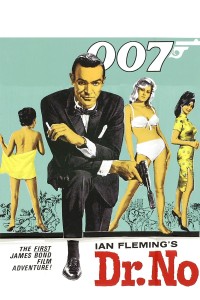A self-formulated essay topic for a Popular Fiction subject. With this essay, I wanted to explore the conceptual, historical and empirical links between the rise of Popular Fiction and the rise of Social Gaming – in so doing, I identified a climate of change centered around the means, needs and paths necessary for a new, popular form of media to arise. I then used this platform to comment on the continued trajectory of casual games, as they further diverge from traditional games.
Monthly Archives: July 2011
bond Vs. bomb: orientalism at work
A given topic for a Cinema Studies subject that focused on cinematic representations of place and space. With this essay, I wanted to explore Edward Said’s theory of Orientalism by examining its applicability to two films that deal explicitly with otherness – Dr No and Hiroshima Mon Amour. As often happens when writing papers for cinema studies, my once cinematic heroes turn out to be zeroes. In this case, poor old 007 got retired; at least there’s Fleming’s Bond to still hold dear.
“Edward Said defines Orientalism as a ‘Western style for dominating, restructuring and having authority over the orient’. He proposes that the orient functions within the Western imagination as a fantasy space associated with ideas of exoticism, eroticism and cultural otherness. Examine the ways in which Western cinema has adopted this view through the organisation of the urban landscape and the depiction of the relationships between the Western/European subject and the Oriental city”
 As a mode of discourse, Orientalism provides a structured framework through which a work of cultural production can access and portray exotic elements that may be unfamiliar to its audience. Particularly in relation to popular Western cinema, Orientalism affords filmmakers a facile shorthand with which to quickly establish characters, settings, motives and persuasions within the narrative of the film. In so doing, however, such films are informed by, and inform further the Western fantasy space wherein ideas of exoticism, eroticism and cultural otherness are reduced to stereotyping and banality. In this essay, I will examine the ways in which an understanding of Orientalism informs the reading of Western cinema, particularly in the case of Dr. No (Young, 1962) and Hiroshima Mon Amour (Resnais, 1959). To do so, this essay will primarily explore what is meant by Orientalism, and then subsequently apply this understanding to identify how and where the two selected films access and diverge from Orientalist discourse. Continue reading
As a mode of discourse, Orientalism provides a structured framework through which a work of cultural production can access and portray exotic elements that may be unfamiliar to its audience. Particularly in relation to popular Western cinema, Orientalism affords filmmakers a facile shorthand with which to quickly establish characters, settings, motives and persuasions within the narrative of the film. In so doing, however, such films are informed by, and inform further the Western fantasy space wherein ideas of exoticism, eroticism and cultural otherness are reduced to stereotyping and banality. In this essay, I will examine the ways in which an understanding of Orientalism informs the reading of Western cinema, particularly in the case of Dr. No (Young, 1962) and Hiroshima Mon Amour (Resnais, 1959). To do so, this essay will primarily explore what is meant by Orientalism, and then subsequently apply this understanding to identify how and where the two selected films access and diverge from Orientalist discourse. Continue reading
